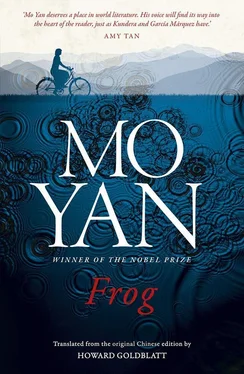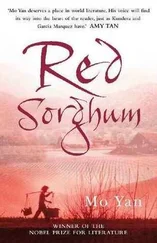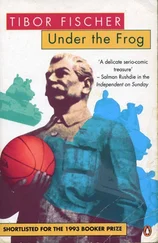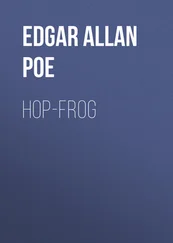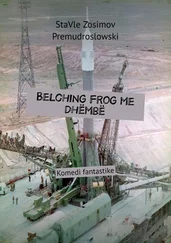Your father said he went to look up Wang at the airfield after that, and was treated to a casual air force meal of braised prawns, spicy chicken nuggets, eggs and day lily, and as much rice as he could eat. His description of the meal made us green with envy. For me, there was pride as well. Not just because it was Wang Xiaoti, but because I had a brother who’d eaten in the air force mess.
Wang Xiaoti also gave your father a harmonica, a very expensive one. Your father characterised Wang as multi-talented. He wasn’t a bad basketball player, who could shoot from all angles, and as well as the harmonica, he could play the accordion; he was also a fine calligrapher and painter. He had tacked a sketch of his onto the wall, a portrait of Gugu. There wasn’t a blemish in his family background. His father was a high-ranking Party cadre, his mother a university professor. Why would someone like that fly to Taiwan and go down as a thoroughly reviled defector?
Wang’s squadron commander said he’d defected after secretly listening to enemy propaganda broadcasts. He had a short-wave radio capable of receiving broadcasts from Taiwan, in particular a KMT station announcer with a sweet and highly alluring voice who called herself ‘Night Air Rose’; a real killer, she was, he assumed, and what ultimately turned Wang into a defector. Did that mean my aunt wasn’t attractive enough for him? The doddering former squadron commander said: Your aunt wasn’t bad, with an excellent family background, good-looking, and a Party member. By standards of that time she was an ideal catch, and we all envied Wang Xiaoti. But your aunt was too revolutionary, too principled, and not appealing enough for someone like Wang, who had fallen for the poisonous appeal of bourgeois thinking. Afterward, the security division examined Wang’s diary, in which he had given your aunt the nickname ‘Red Blockhead’. It was a good thing they had his diary, his squadron commander said, for it left your aunt in the clear. Without it, she could not have recaptured her good name even if she’d jumped into the cleansing waters of the Yellow River.
Sensei, I told my nephew that his great-aunt wasn’t the only one who nearly met destruction by Wang’s hand. The authorities investigated your father several times, I said, and that harmonica was confiscated as evidence of Wang Xiaoti’s corruptive influence on the young. He’d written in his diary: Red Blockhead introduced her dumb nephew to me, another Red Blockhead, and he had a goofy name: Wan Kou, Wan Mouth! Again, it was that diary that saved your father.
Maybe Wang did all that on purpose, my nephew said.
Your great-aunt came to that conclusion later. She believed that Wang had left his diary behind to protect her. That’s why last night she said that he’d ruined her, but he’d also saved her.
Sensei, my nephew was mainly interested in how Wang Xiaoti managed to defect. He especially admired Wang’s flying skill. He said the slightest miscalculation while flying eight hundred kilometres an hour no higher than five metres above the water could have sent his Jian-5 plunging into the ocean. It was a skillful, gutsy performance, according to the youngster. There’s no denying his cockpit mastery, regardless of weather conditions. Before his defection, every time he flew a training mission over our village, he’d wow us with his aerobatics. We used to say he could fly down to the watermelon patch on the eastern edge of the village, pluck a melon out of the ground, and, with a wing wave, soar back up into the clouds.
Did they really reward him over there with five thousand ounces of gold? my nephew asked.
Maybe, I said. But even ten thousand ounces wouldn’t be worth it. You mustn’t envy him, Xiangqun. Money and beautiful women are as transient as floating clouds. Country, honour, and family are the only true treasures.
You must be joking, Third Uncle, he said. Who says things like that in this day and age?
In the spring of 1961, after Gugu came out from under the cloud of the Wang Xiaoti incident, she returned to work at the obstetrics ward in the health centre. Over a two-year period, however, not a single infant was born in any of the more than forty villages that made up the People’s commune. The reason? Famine, of course.
Hunger disrupted women’s menstrual cycles. Hunger turned men into eunuchs. The obstetrics ward included only Gugu and a middle-aged doctor named Huang. Dr Huang was a graduate of a prominent medical school, but because of a questionable family background and her own history as a rightist, she’d been exiled to a rural health centre. Every time she mentioned the woman’s name, Gugu could barely contain her anger. The woman had a strange disposition. Some days she might not say a word to anyone, on other days she’d be bitterly sarcastic, talking a blue streak. She could give a lengthy speech to a spittoon.
Gugu stopped going home so often after her mother died, but whenever there was something special on the table, Mother had my sister send some over to Gugu. One day my father got his hands on half a rabbit in the field, probably the remnant of a hawk’s meal. Mother went out and picked half a basket of wild greens and cooked them together with the rabbit. She wrapped up a bowlful of the meat and told my sister to take it over to Gugu. When she said she wouldn’t do it, I volunteered. You can go, Mother said, but don’t sneak some of it for yourself on the way. And keep your eyes open while you’re walking. I don’t want you breaking that bowl.
The health centre was about ten li from our house. I started off trotting, wanting to get there while the rabbit meat was still warm. But my stomach began to growl at the same time as my legs began to ache, and I was sweating and light-headed. In short, I was hungry. The two bowls of porridge with greens I’d eaten that morning had passed through my stomach and the smell of the cooked rabbit was seeping through the wrapping. A debate, soon to develop into an argument, between me and myself broke out. Have a bite, one me said, just one bite. No, the other me countered, you have to be an honest boy and do what your mother said. My hand came close to undoing the wrapping more than once, but the image of Mother’s face flashed into my mind.
Mulberry trees lined both sides of the road from our village to the health centre, all stripped bare of leaves by famine victims. I broke off a branch and began gnawing on it, finding its sharp, bitter taste hard to swallow. But then I spotted a cicada that had just emerged from its cocoon, a nice soft yellow, its wings not yet dry. Ecstatic, I flung down the mulberry branch, scooped up the cicada and popped it into my mouth. Cicadas were a nutritious delicacy to us, but only after they were fried. By eating this one raw I saved on fuel and time. It had a fresh taste and, I was willing to bet, was more nutritious than if it had been fried. I searched all the trees as I walked along, but found no more cicadas. I did, however, find a fancy coloured handbill showing a young man with a glowing face holding a lovely young woman in his arms. The text read: Communist Air Force pilot Wang Xiaoti has left the dark side and flown into the light, where he is now a Nationalist Air Force Brigadier General. He has received five thousand ounces of gold, and is the glorious mate of the famed songstress Miss Tao Lili. My hunger abruptly forgotten, I experienced a strange and powerful emotion. I felt like screaming. In school I’d heard that the Nationalists sent reactionary handbills across the Strait by balloon, but I never thought I’d actually see one or that it could be quite so flashy. And I had to admit that the woman in the photograph was better-looking than Gugu.
Gugu and Dr Huang were having a heated argument when I walked into the ward. Dr Huang wore a pair of dark glasses over a hooked nose, thin lips, and exposed, badly stained teeth — in future years Gugu would often remind us that staying single was preferable to marrying a woman whose teeth showed when they talked — there was a gloomy cast in her eyes that sent chills down my back. I heard her say, How do you get off telling me what to do? You were still in nappies when I was in medical school!
Читать дальше
